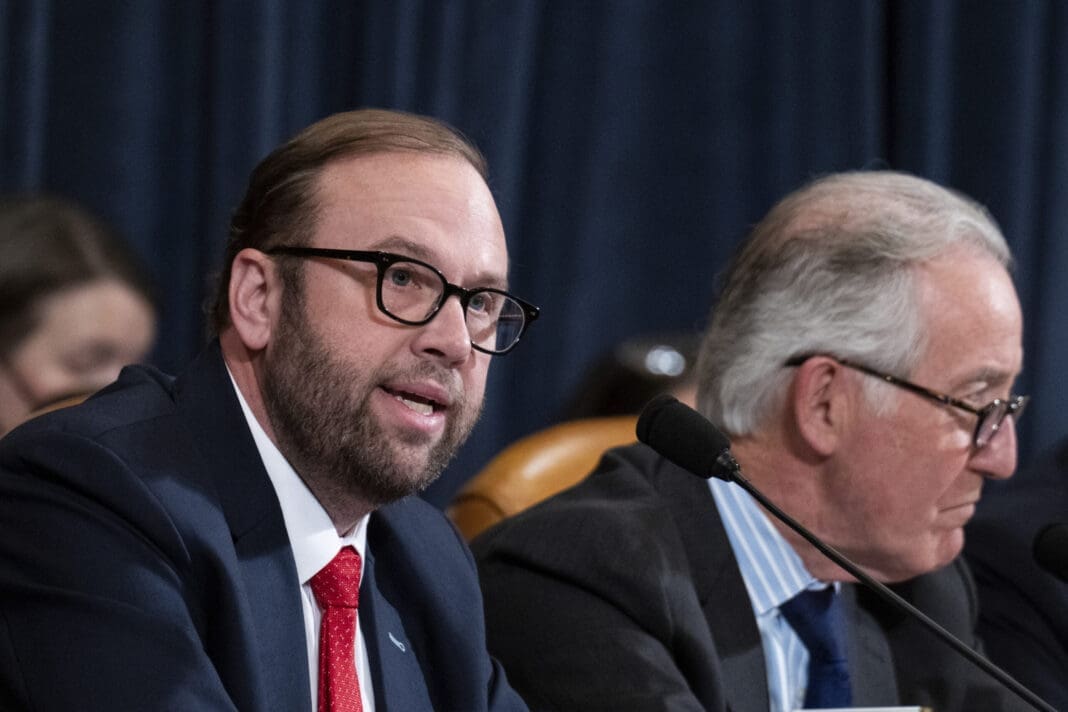The House GOP’s debt ceiling gambit hurt the nation’s credit rating
Republicans’ refusal to pass a clean debt ceiling bill may mean higher interest rates for the national debt.

Fitch Ratings, a major credit rating agency, has downgraded the rating of the U.S. government, citing the recent standoff over the federal debt ceiling between House Republicans and the White House. Experts say this may result in higher borrowing costs that will make the nation’s debt even larger.
Fitch announced on Tuesday that its Long-Term Foreign-Currency Issuer Default Rating for the United States had dropped from the highest level of “AAA” to “AA+.” In its statement, the firm explained, “The rating downgrade of the United States reflects the expected fiscal deterioration over the next three years, a high and growing general government debt burden, and the erosion of governance relative to ‘AA’ and ‘AAA’ rated peers over the last two decades that has manifested in repeated debt limit standoffs and last-minute resolutions.”
The national debt is currently about $32.7 trillion, reflecting money the Treasury Department has already borrowed to pay for expenses not covered by revenue and interest on what it owes. Congress has set ceilings on that debt by law, but continues to spend more money than is paid for by taxes and fees.
In October 2022, House Republicans indicated that if they regained a majority in that year’s midterm elections, they would use the nation’s debt limit as leverage to force massive cuts to the federal budget, including to funding for Medicare, Medicaid, and Social Security. “The debt limit is clearly one of those tools that Republicans — that a Republican-controlled Congress — will use to make sure that we do everything we can to make this economy strong,” said Missouri Republican Jason Smith, the top Republican on the House Budget Committee.
After winning a narrow majority, House Republicans refused President Joe Biden’s calls for increasing revenue by raising taxes for the richest Americans and large businesses and for a clean increase in the debt limit. Instead they voted for a bill that paired a debt ceiling increase with a repeal of the clean energy investments in Biden’s historic Inflation Reduction Act and with $4.5 trillion in spending cuts over a decade.
Economic experts warned that the fight over the debt ceiling itself could cause lasting economic damage and imperil the nation’s credit rating. As with credit scores for ordinary Americans, a credit rating downgrade for the government would likely mean higher interest rates on future loans.
Experts pointed to 2011, when a Republican House majority used the threat of a debt default as leverage to force President Barack Obama to agree to spending cuts. The threats alarmed credit markets, leading to a downgraded credit rating from Standard & Poor’s rating agency.
A July 2012 analysis by the nonpartisan Government Accountability Office estimated that the delay in raising the debt limit had increased borrowing costs by $1.3 billion in 2011.
Seth Hanlon, a senior fellow on the progressive Center for American Progress’ tax and budget policy team, told the American Independent Foundation in October 2022 that a credit downgrade could well happen again in 2023: “The ironic part is that if House Republicans instigate a debt limit crisis like they did in 2011, it would not only risk catastrophic economic damage, but it would likely result in higher interest costs for the federal government — in other words, higher deficits.”
But House Republicans in 2023 waited until just days before a possible cataclysmic debt default before agreeing to a bipartisan deal to suspend the debt ceiling until January 2025 and adopt smaller federal spending restrictions. At Biden’s insistence, no cuts were made to Social Security or Medicare in the compromise legislation enacted in early June.
Democratic New Mexico Sen. Martin Heinrich, chair of the U.S. Congress Joint Economic Committee, released a statement about the Fitch downgrade that blasted the GOP’s gambit:
Actions have consequences, and Republicans’ reckless stand-off on the debt limit has now caused one of the exact consequences we warned about: A leading rating agency has downgraded its U.S. debt rating.
I completely disagreed with House Republicans’ actions on the debt limit, and I disagree with the new threats coming from certain House Republicans related to our annual spending bills. No one should play politics with the good faith and credit of the United States of America or the economy that American families depend on.
“Fitch has downgraded the U.S. long-term credit rating from AAA to AA+,” University of Michigan economist Justin Wolfers tweeted on Tuesday. “And I’m mad as hell, because it’s the direct result of a multi-decade campaign of fiscal vandalism and political sabotage by Republicans, and the rest of us are left footing the bill.”
Published with permission of The American Independent Foundation.
Recommended

Biden calls for expanded child tax credit, taxes on wealthy in $7.2 trillion budget plan
President Joe Biden released his budget request for the upcoming fiscal year Monday, calling on Congress to stick to the spending agreement brokered last year and to revamp tax laws so that the “wealthy pay their fair share.”
By Jennifer Shutt, States Newsroom - March 11, 2024
December jobs report: Wages up, hiring steady as job market ends year strong
Friday’s jobs data showed a strong, resilient U.S. labor market with wages outpacing inflation — welcome news for Americans hoping to have more purchasing power in 2024.
By Casey Quinlan - January 05, 2024
Biden’s infrastructure law is boosting Nevada’s economy. Sam Brown opposed it.
The Nevada Republican U.S. Senate hopeful also spoke out against a rail project projected to create thousands of union jobs
By Jesse Valentine - November 15, 2023









































































